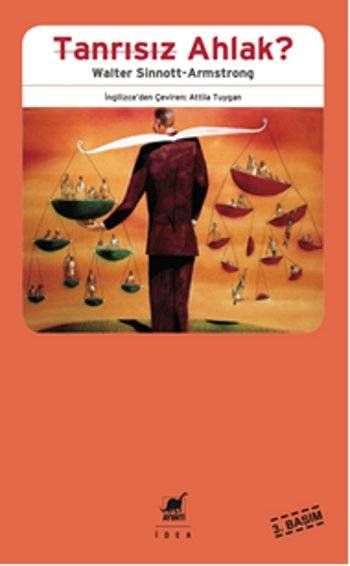
Tanrısız Ahlak?
Why is the first word crossed out? Because the purpose of this book is to show that there is no problem with morality without God. Philosophy professor Walter Sinnott-Armstrong states that he wrote this book to show why morality has no meaning when dealing with religion. Ivan Karamazov, the hero of Dostoyevsky's novel, says, "If God is dead, everything is permissible." Atheists who accept this dogma conclude that morality is subjective. Theists who accept this dogma believe that atheists are dangerous. This book, which aims to show that both sides in this conflict are wrong and that their blunders stem from their mutually false assumptions that "If God is dead, everything is permissible", is a lengthy refutation of this popular statement by Karamazov. Regarding the assumption that "if God is dead, everything is permissible", people have only two options: Either (a) believe in God and belong to a religion, or (b) believe that they and their friends are not morally good and those who harm them are morally bad; Because they have to accept that nothing is truly morally good or bad, right or wrong. Many people desire a third option; It's easy to see why. Even if they believe in God, they still want a morality they can share with their friends who don't believe in any God or the God they believe in. In this book, the author presents three arguments against the existence of God. Accordingly: First, an all-powerful and totally good God is incompatible with the amount and types of evil in our world. Second, an eternal and unchanging God could have no influence on events over time and therefore could not create the world or answer prayers. Third, if God existed, we would have much better evidence for His existence than we can find. Respecting religious beliefs and kindness does not mean that atheists remain silent. For some reason, criticism of religious beliefs is seen as rude or unconstitutional; but it is not like that at all. Morality Without God is a book that will be enjoyable to read for those who think and wonder about these issues.
(From the Promotional Bulletin)
Number of Pages: 160
Year of Printing: 2016
Language: Turkish
Publisher: Details Publications
First Printing Year: 2011
Number of Pages: 160
Language Turkish
| Publisher | : | Details Publications |
| Number of pages | : | 160 |
| Publication Year | : | 2016 |
| ISBN | : | 9789755396361 |
| Translator | : | Attila Tuygan |
| The heart | : | Turkish |


